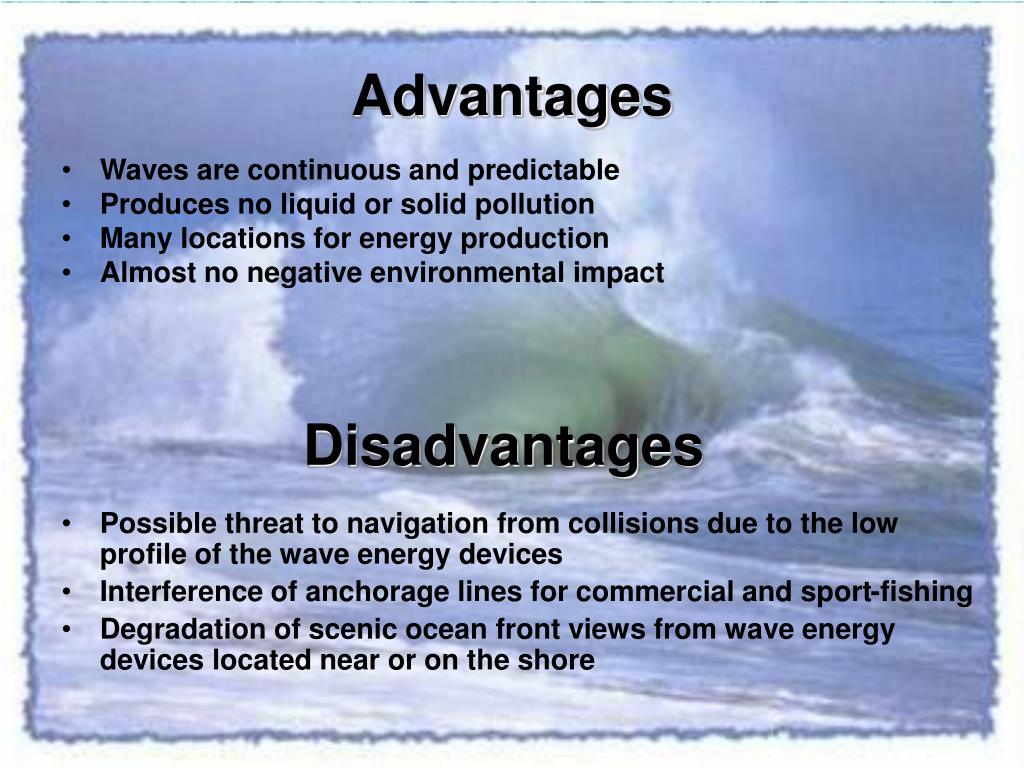
PPT ENERGY FROM THE OCEAN PowerPoint Presentation, free download ID621635
In conclusion, wave energy is a form of renewable energy that holds great potential as a clean energy source. However, it also has several disadvantages that must be considered before investing in it. These include limited availability, high upfront costs, environmental impacts, reliability, damage vulnerability, limited energy density.

Wave Energy, Definition, Process, Advantages & Disadvantages
How does it work? Is wave and tidal energy the same? Is wave energy renewable? Disadvantages of wave energy What are the uses of wave energy? Which countries use wave power the most? How does wave energy work? Wave energy works by harnessing the energy of ocean waves caused by wind and atmospheric pressure.
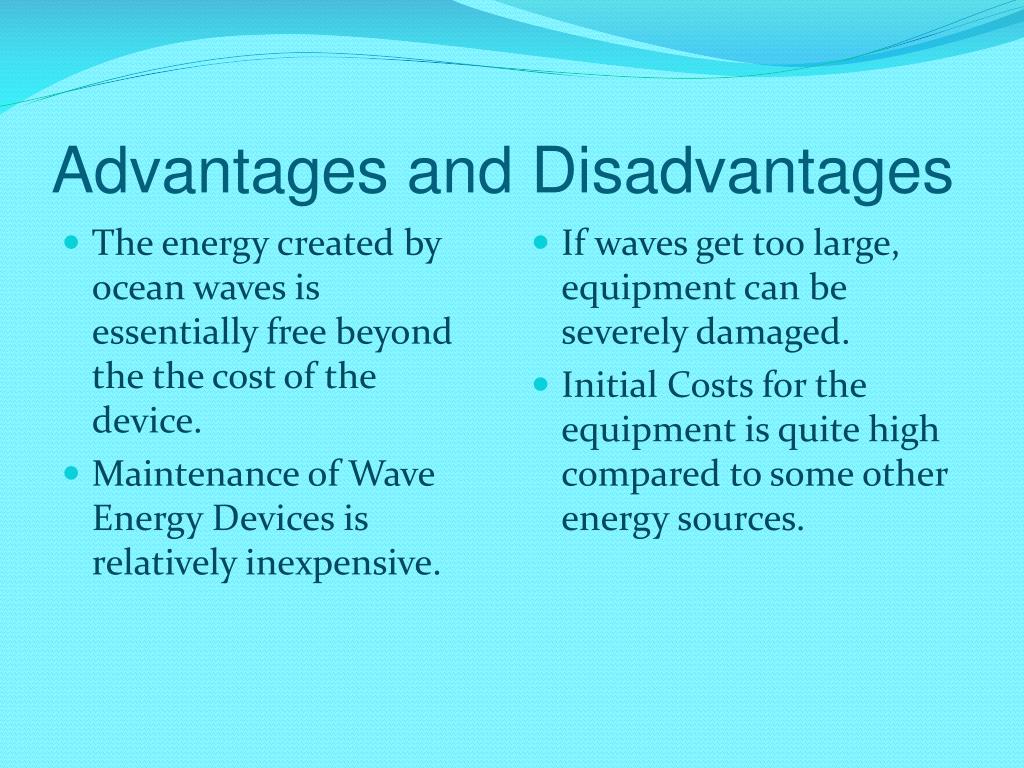
PPT Ocean Waves and Tidal Power PowerPoint Presentation, free download ID3146975
Amazon $ 29.99 Table of contents Advantages of Wave Energy Some of the advantages of wave energy include: 1. Renewable The best thing about wave energy is that it will never run out. There will always be waves crashing upon the shores of nations near the populated coastal regions. The waves flow back from the shore, but they always return.
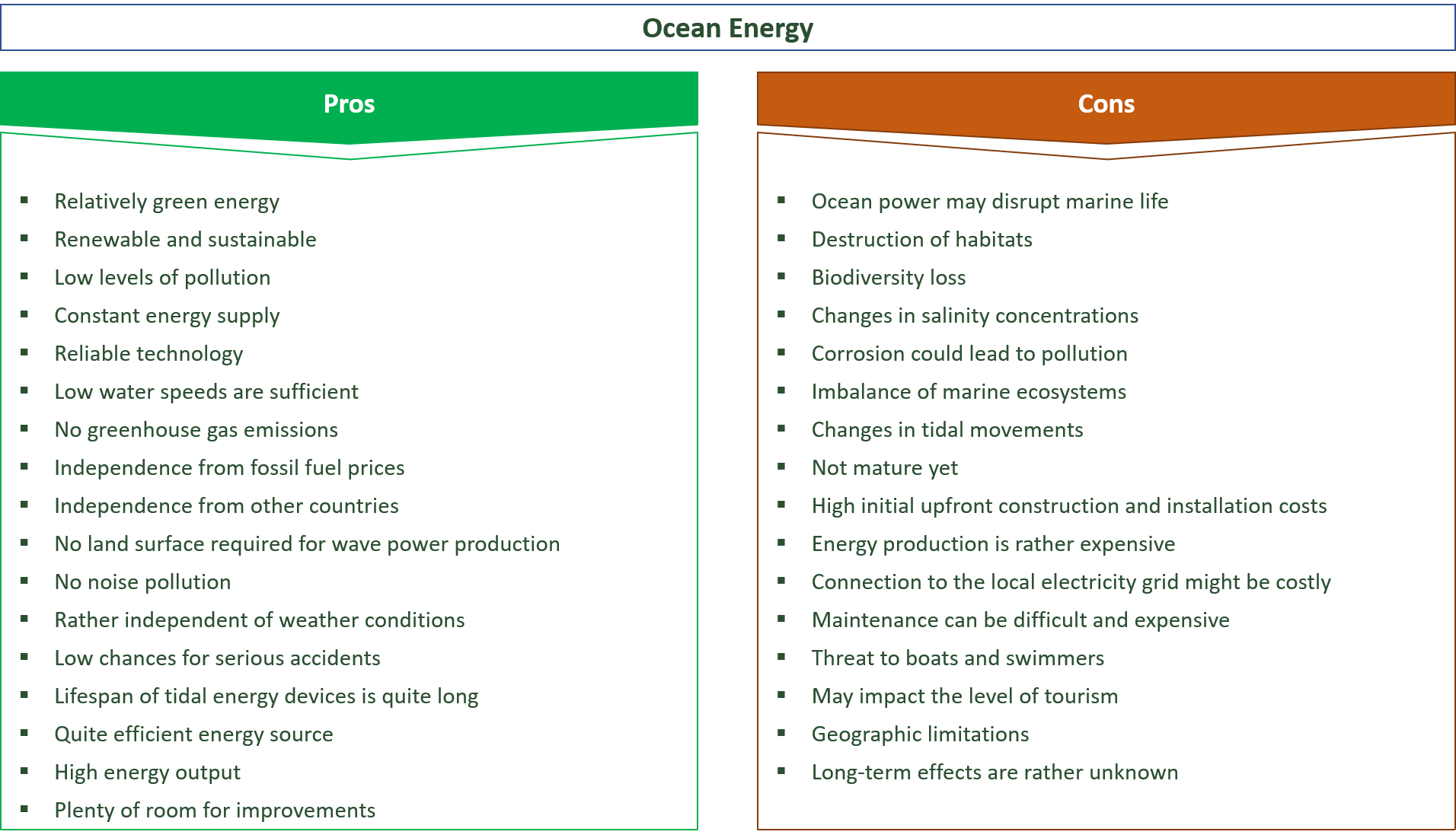
33 Main Pros & Cons Of Tidal Wave Energy E&C
Size Advantage Minimum Visual Impact Efficient Energy Production Low Operational Cost and Fewer Maintenance Issues Using wave energy has some benefits that are described below. Find out More about Renewable Energy Device & Equipment in Linquip Click HERE Renewable Is wave energy renewable?

What are the advantages and disadvantages of wave energy Circuit Analysis YouTube
Renewable Wave energy is renewable, it requires two things from the earth; ocean and wind. Both of these are sustainable and finite; they won't run out. Environmentally Friendly Wave energy is green and produces zero waste, pollution, harmful by-products, or gas. It is an ideal replacement for toxin-producing fossil fuels. Reliable
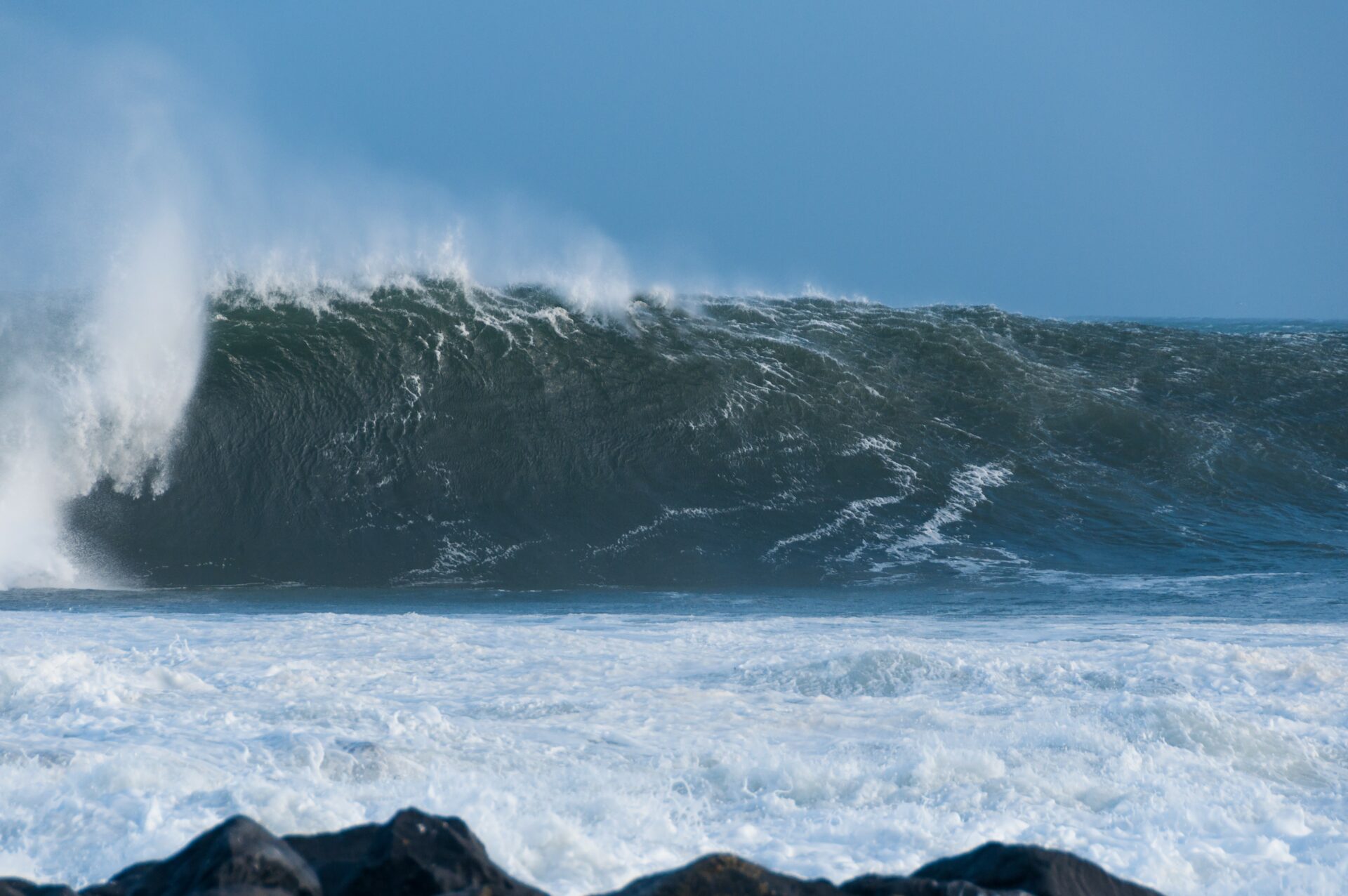
Wave Energy Advantages and Disadvantages (2023 Update) Linquip
Wave power advantages and disadvantages are; reliability, renewable operation, sustainability, fossil fuel independence, high potential, versatility, flexibility, consistency, minimal maintenance (advantages); cost, usability, weather susceptibility, technical limitations, transmission challenges, navigation problems, geographic constraints (dis.
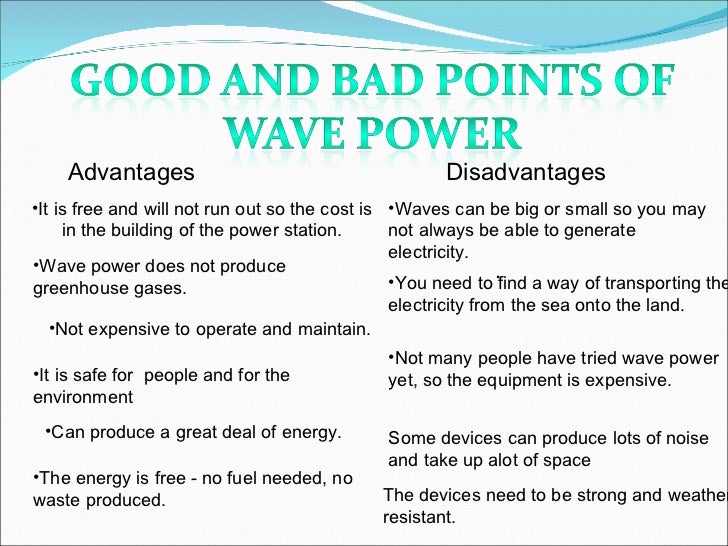
Wave power presentation
Concerns and Challenges While wave power presents a promising avenue for clean and renewable power generation, it is not without its concerns and potential drawbacks. One of the primary concerns relates to its impact on marine life.
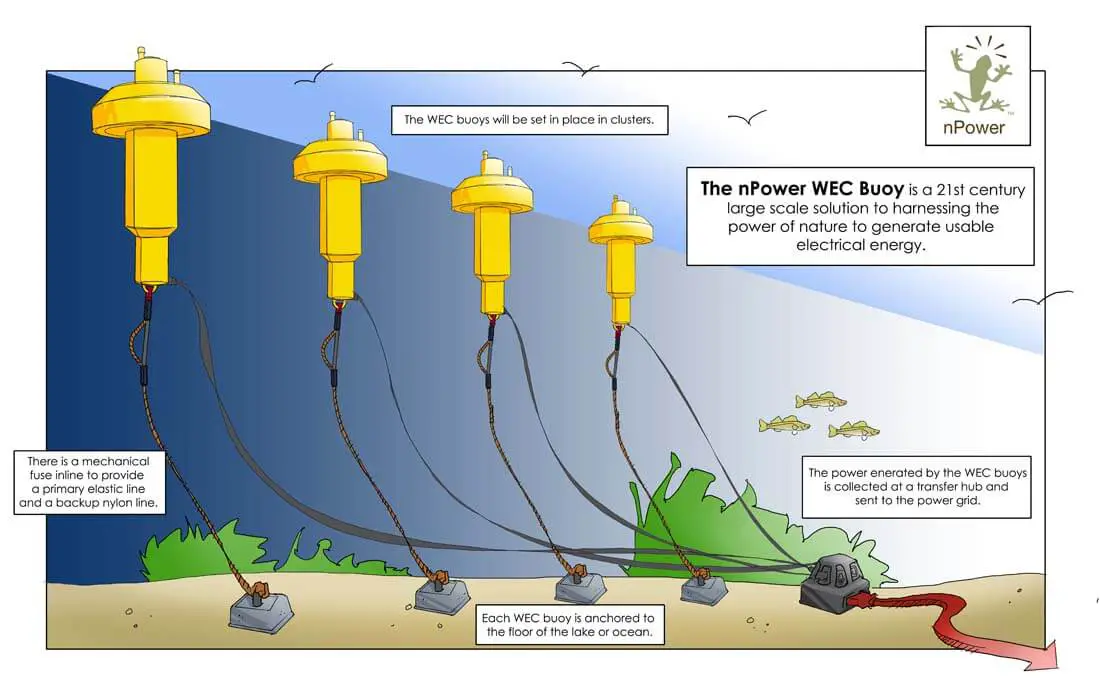
25 Wave Energy Pros And Cons
Marine Energy Wave power Wave Energy: the Advantages and Disadvantages of Wave Power Wave energy takes advantage of the movement of ocean waves to generate electrical energy. The energy carried by waves on the water's surface can be used to do valuable jobs: generating electricity, desalinating water, and pumping water into tanks.
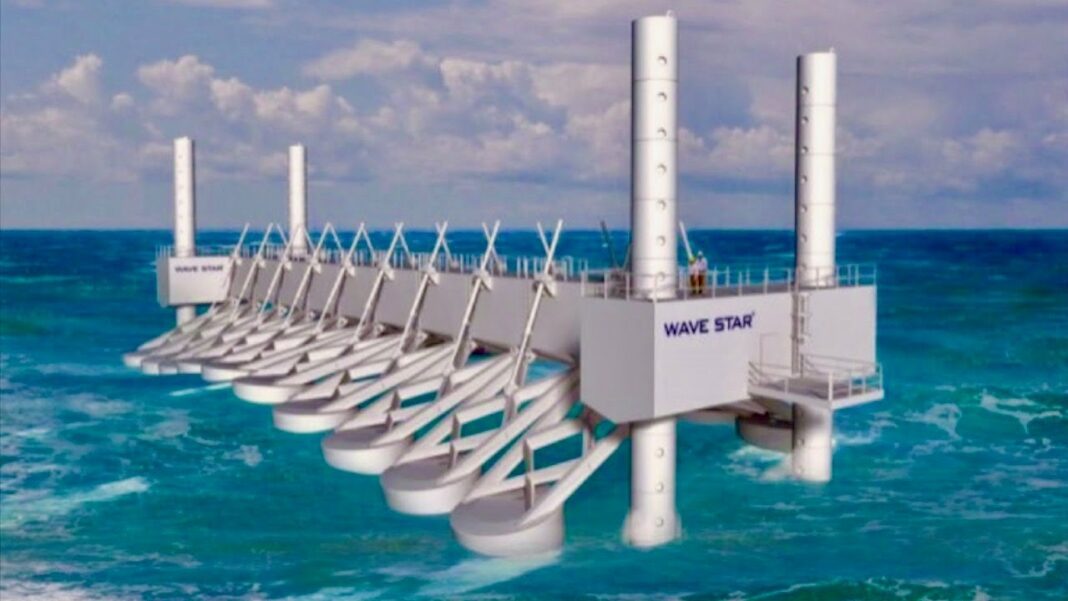
Wave Energy Advantages and Disadvantages (2023 Update) Linquip
Disadvantages of Wave Power 1. Accessibility Issues 2. Can be Quite Expensive 3. Impact on Marine Ecosystem 4. Energy Transmission Problems 5. Lack of Investment 6. Lack of Subsidies The progress in technology sometimes comes at a cost .

Wave/Tidal Energy by Ellie Holt
Advantages Zero emissions Renewable Energy potential Reliable. Show more Pros and cons of wave energy What is wave energy? The easiest way to think about it is this: a wave's force powers underwater turbines that are attached to a buoy. The turbines then spin from the force of water and generate electricity.

4 Major Advantages and Disadvantages of Tidal Energy Energy Theory
Table of Contents Advantages of Wave Energy: 1. Abundance of Renewable Resource 2. Environmentally Friendly 3. Energy Security and Independence 4. Scalability and Compatibility Disadvantages of Wave Energy: 1. Impact on Marine Ecosystems 2. Intermittency and Energy Storage Challenges 3. High Initial Costs 4. Technical Complexity Conclusion: FAQ -
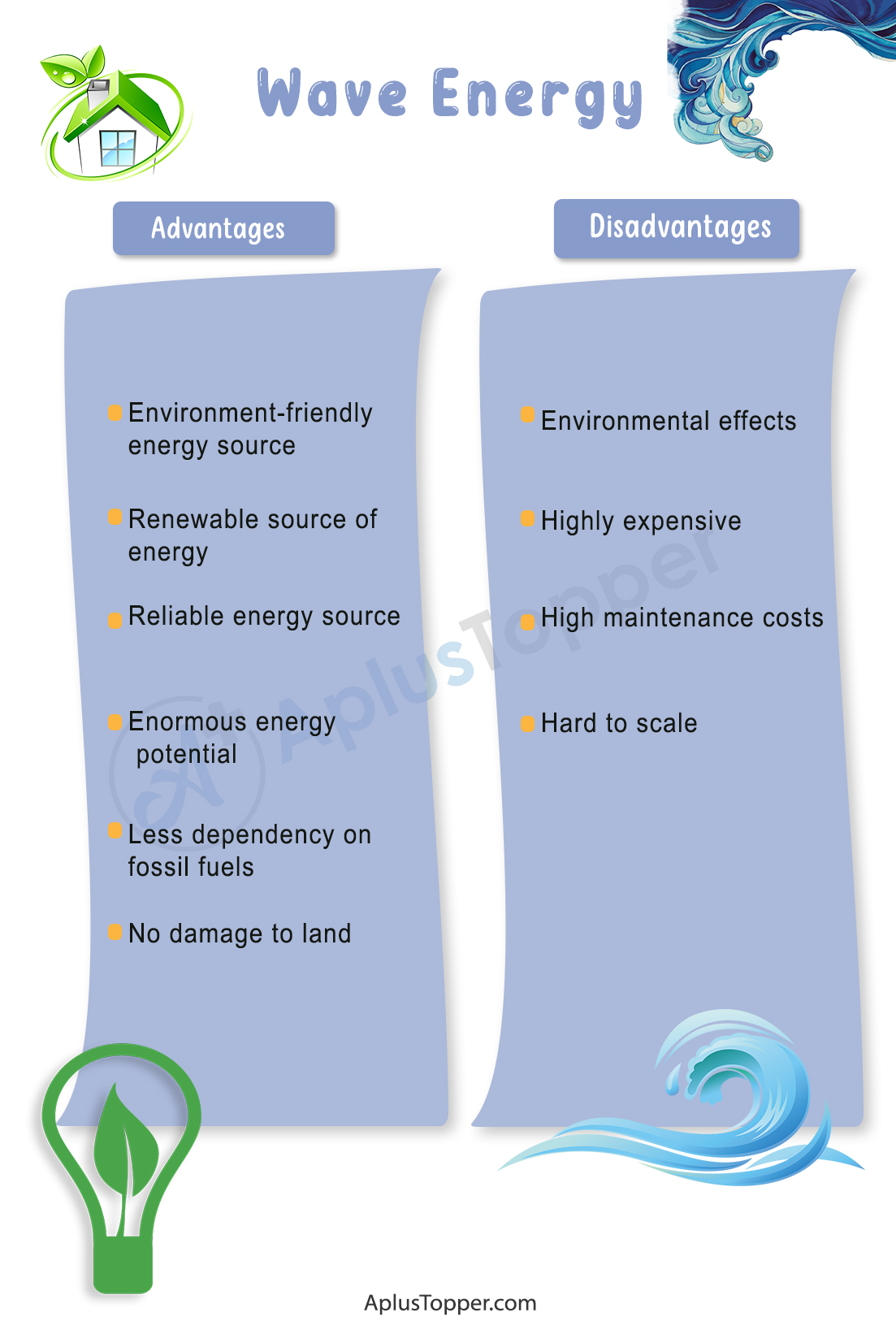
Advantages and Disadvantages of Wave Energy Various Top Advantages and Disadvantages of Wave
Energy Transition Listen to the article Wave energy could meet all the world's electricity needs. But technologies to harness wave energy are still developing. Ocean power generation needs to grow by 33% a year to achieve a net-zero world by 2050, says the International Energy Agency.
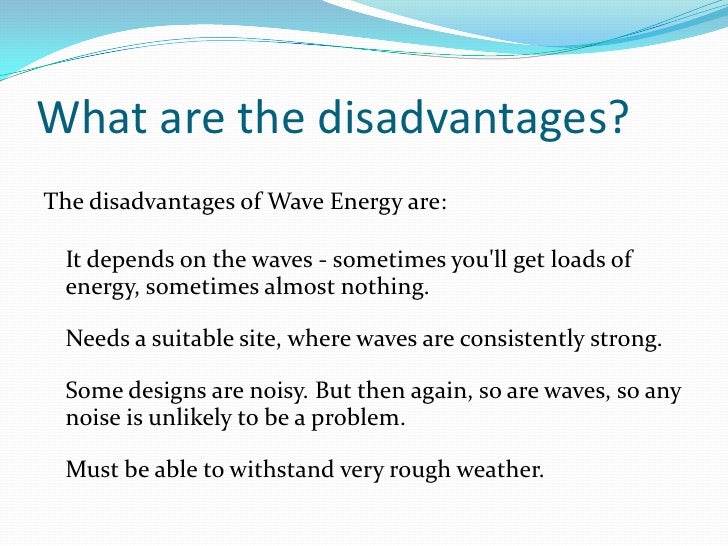
Wave energy
Read about: Nuclear Power Plants in India What is Wave Energy? Wave Energy is the term for the transfer and collection of energy by ocean surface waves (or wave power). After being captured, the energy is used for a variety of purposes, such as the production of electricity, desalination of water, and water pumping.

Wave Energy Ocean Energy
Advantages and Disadvantages of Wave Energy: Wave energy or wave power is the transportation and capturing of energy by ocean surface waves. The energy captured is then used for every kind of valuable work, including electricity generation, water desalination, and water pumping.
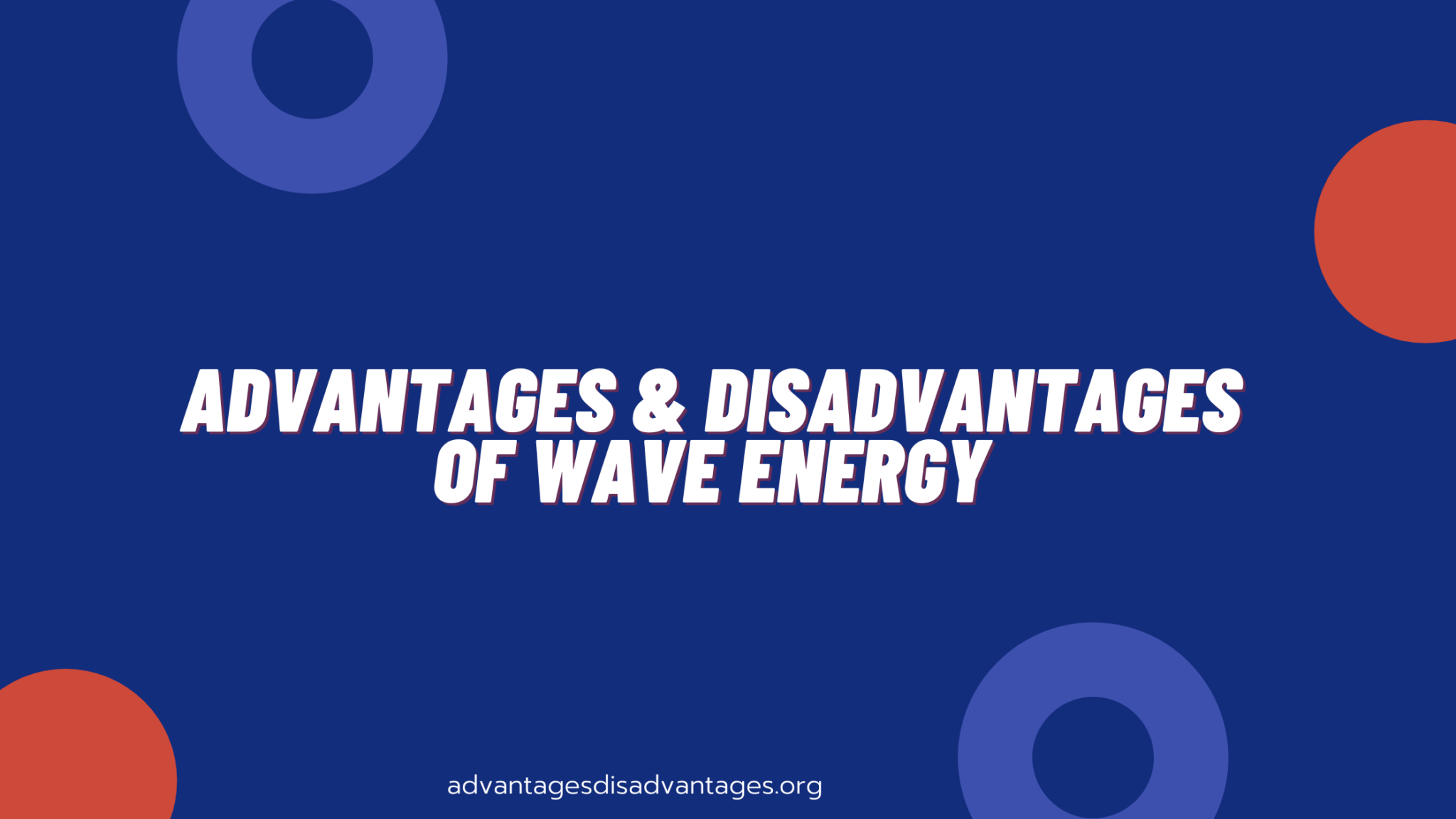
Advantages and Disadvantages of Wave Energy Pros Cons
Jump to Key points Waves contain kinetic energy. By using turbines, the kinetic energy of waves can be transferred into electrical energy. Wave power does not use up any fuels and so it.
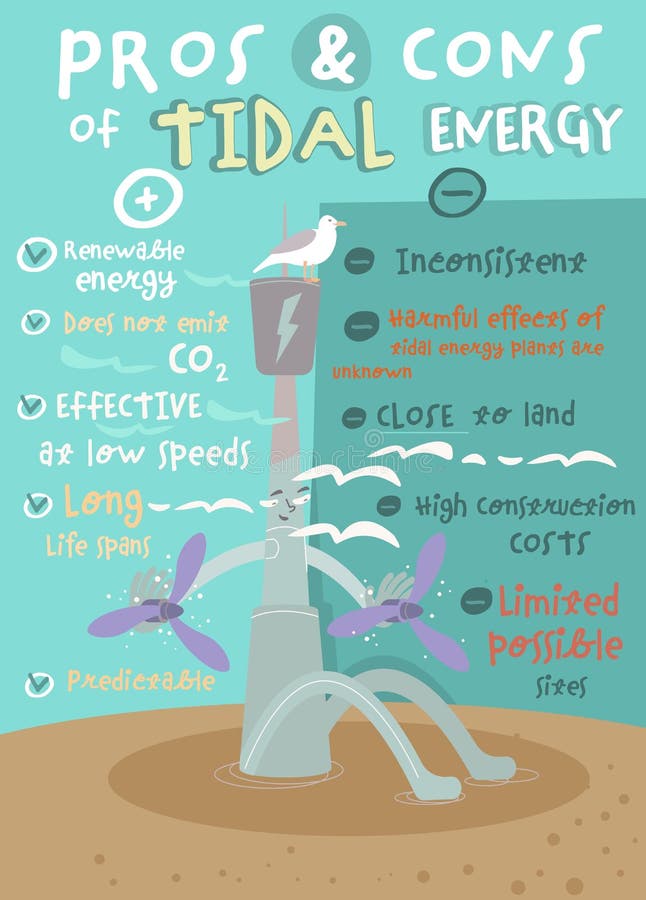
Pros and Cons of Tidal Energy. Vertical Poster Stock Vector Illustration of advantage, wave
Disadvantages of wave energy are; geographic limitation, initial cost, marine ecologic impact, scale challenges, and economic impoundment. This article discusses the disadvantages of wave energy, as follows; 1). Geographic Limitation (as one of the Disadvantages of Wave Energy)